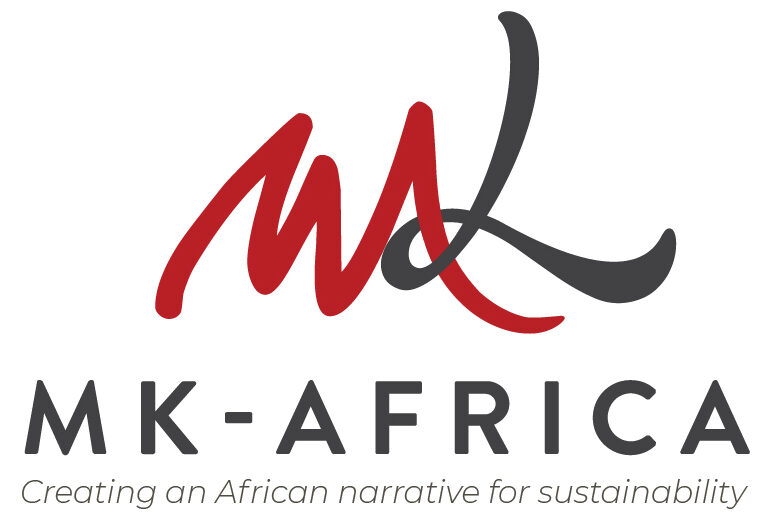MK-Africa recently facilitated a conversation with a team from Citibank to explore the opportunities in maintaining a balance between environmental, social equity, and economic (ESG) demands and the direction of client investments. We specifically examined the growing impact of climate change on measuring and reporting long-term business success factors.
The impacts of climate change pose a clear and intensifying threat to business continuity through a variety of factors such as increased frequency of extreme weather events and changes in rainfall patterns. These intensify operational and supply chain disruption risks, as well as having knock-on effects such as the volatility of commodity prices, causing financial losses or additional capital costs, as well as potential damage to the reputation of companies. One of the immediate risks to business comes from regulation in response to climate change by governments and regulatory authorities. Increasingly, regulators require businesses to meet targets for greenhouse gas emissions reduction and companies failing to comply face financial and potentially other legal consequences.
Kenya, for example, is in the process of establishing a national emissions trading system (ETS) to support the country’s ambitious carbon reduction target to be net zero by 2050. This is bound to translate into expectations for businesses in the country to comply to certain regulations to meet this target.
However, some of the biggest direct opportunities for business growth are also incentivised by regulatory, fiscal and market incentives focussing on mitigating (minimising) the risk of climate change.

It is estimated that a total of $2.6 trillion will have been invested in clean energy generation through the increase renewable capacity (excluding large hydro) in the last decade alone. 2018 was the fifth successive year where renewables capacity investment exceeded $250 billion.
Energy efficient construction is another area where there are opportunities for business growth. The global buildings sector is growing at unprecedented rates. Over the next 40 years, the world is expected to build 230 billion square metres in new construction – adding the equivalent of Nairobi or Durban to the planet every single week. This rapid growth is not without consequences. While buildings sector energy intensity has improved in recent years, global buildings sector emissions increased 2 percent from 2017 to 2018, to reach a record high. Measures to improve energy use and efficiency of new and existing buildings all offer investment opportunities, including insulation, LEDs, waste heat recovery as well as measures to influence current behaviours. However, the buildings sector must continue to drive innovation and transform if it is to meet the challenge of net zero carbon buildings.
Sustainable transportation provides another opportunity for businesses looking to make climate smart investments. Not only is transport the third largest sector for global greenhouse gas emissions, it is also one of the fastest growing. However, there are a number of sub-sectors in the transition to low carbon transport that are proving to be very attractive to investors. They include electric vehicles, the sharing economy, mass transit, and trucking and logistics. Battery storage technologies are already creating growth in the electric-vehicle market and in storage for smart electric grid systems. As part of a clean technology investment strategy the $61.3 billion global ride-sharing industry is estimated to grow to $218 billion by 2025. As city populations continue to grow and traffic congestion increases, clean mass transit projects around the world are attracting considerable public and private investment.

Some indirect opportunities include the demand for increased resilience through products or services that support organisations in responding to climate change, particularly those with fixed assets or extensive supply or distribution networks. Examples include products that are heat and weather-resistant or have reduced dependence on infrastructure such as power, water and transport. In 2019, there was a 70 percent increase in overall capacity of large-scale battery storage, a technology that not only supports a low carbon economy but also provides organisations with flexibility to reduce the impact of potential brownouts (a drop in voltage in an electrical power supply system).
The demand for climate risk solutions also provides opportunities through products or services that monitor, measure and provide solutions to weather risks are in demand. For example, products or services that provide irrigation in increasingly arid regions. Total economic losses from natural disasters have averaged $180 billion annually in the last decade. Of this, around 70 percent of risks from natural disasters remain uninsured. There is an opportunity for the increase in the development of climate adaptation and insurance risk solutions to support this.
Finally, consumer awareness of the impacts of day-to-day lifestyle choices on the environment is increasing, which is providing new business opportunities. For example, consumers, including vegans and meat-eaters, are including plant-based protein in their diets, a growing number of people are choosing online engagements over short-haul flights etc.
Business innovation, in response to these opportunities, is already delivering significant returns for entrepreneurs and investors. Responding to the challenge of climate disruption can lead to reduced costs, increased organisational resilience and improved capacity to capture new growth opportunities, as well as strengthened company image in the eyes of customers.


